RHI scandal: Arlene Foster wanted scheme 'launched without delay'
- Published
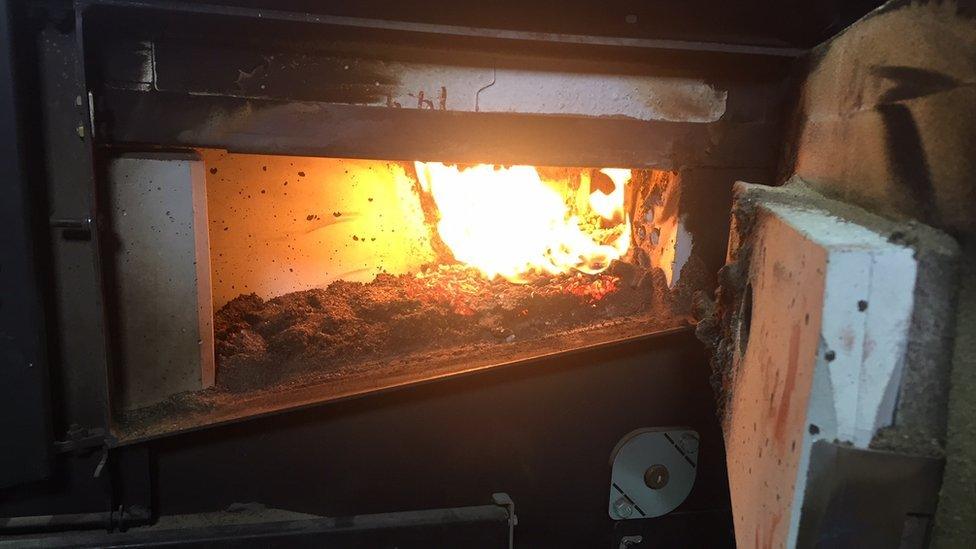
There are about 2,000 boilers accredited to the RHI scheme
Officials pushed ahead with the introduction of the Renewable Heat Incentive (RHI) scheme against expert advice because their then minister Arlene Foster wanted it launched without delay, an inquiry has heard.
The RHI public inquiry, overseen by Sir Patrick Coughlin, began on Tuesday.
The energy scheme encouraged businesses to switch from fossil fuels to biomass or woodchip.
But a lack of cost controls meant it could overspend by £700m over 20 years.
Sir Patrick Coughlin was told that the accuracy of the claims about Mrs Foster's alleged instructions would have to be teased out in her written and oral evidence.
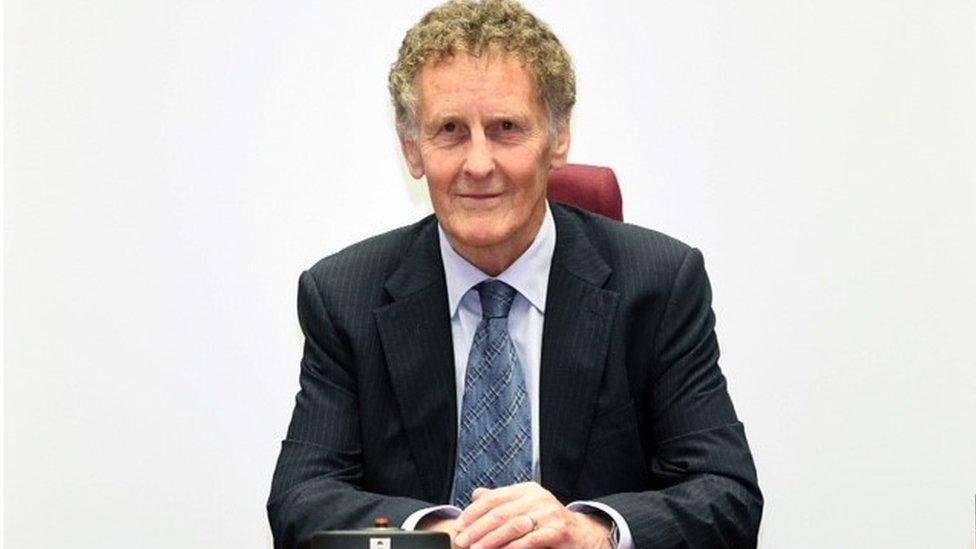
Sir Patrick Coghlin is chairing the inquiry, which is expected to take several months
David Scoffield QC, counsel for the inquiry, referred to a minute of a teleconference between officials in the Department of Trade and Investment and the regulator Ofgem, which was helping to bring in the scheme.
He said Ofgem, in its statement to the inquiry, said it had warned the officials to wait until cost controls had been introduced into the RHI scheme in Great Britain, so that they could be replicated in the Northern Ireland version.
The teleconference took place on 26 June 2012, as Northern Ireland's regulations were being drafted.
During the call, DETI (Department of Enterprise, Trade and Investment) and officials told Ofgem their minister wanted to get on with the introduction of the scheme.
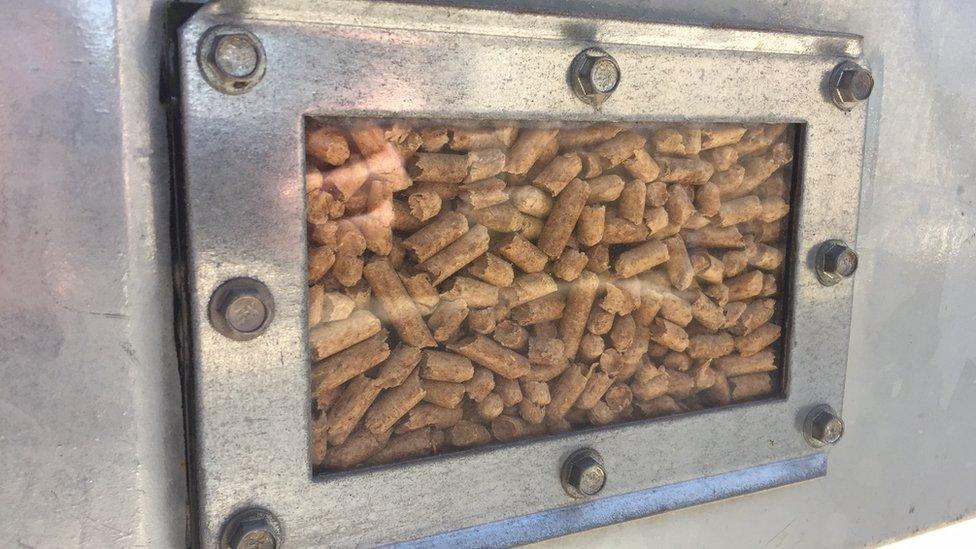
Many of the boilers, like this one, burn wood pellets
"Ofgem's evidence is that the department recorded the minister's wish to proceed without waiting or having reviewed the amendments to the Great Britain scheme," Mr Scoffield said.
The Great Britain scheme had been running for about seven months at that time.
Officials there were bringing in a temporary suspension mechanism and considering measures to vary tariffs in order to avoid budgetary pressure.
The minute records DETI officials telling Ofgem that they planned to update the Northern Ireland regulations in the summer of 2013 and would incorporate the GB cost controls then.
'Recommendation to wait'
The Northern Ireland scheme was launched in November 2012 but the promised review never happened.
Mr Scoffield said one of the Ofgem lawyers later felt it was important to have a record that it had "hammered home" to DETI officials "that we had significant concerns regarding the course that they are preparing to adopt".
Another had said it was "important to capture Ofgem's clear recommendation to DETI was to wait until the regulations are amended due the risk the current ones pose".
Mr Scoffield said it would have to be established whether the minutes were "an accurate record of what precisely had been discussed".
"I do not say definitively that the version we have just been looking at is the final authoritative agreed version, although we believe that it is."
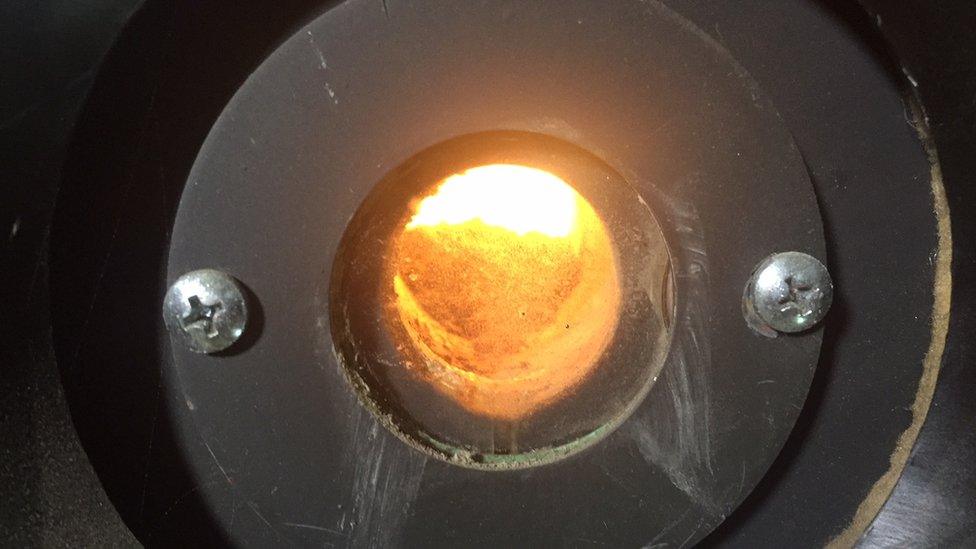
One-year cost controls are currently in place
He said what still needed to be established was where the officials' belief that Mrs Foster was adamant the scheme should proceed without delay had come from.
"For instance, was that on the basis of discussions with the minister, with her special adviser and, in that case, are there any notes or written records of those discussions?"
Mr Scoffield said there was a "paucity of evidence" in material examined so far as to "precisely what happened in terms of what - if these minutes are correct - DETI was being told by Ofgem and, as I have said, whether and how that was being communicated to the minister or her special adviser, and in what terms and the response".
'Considerable retreat'
Earlier on Wednesday, the inquiry heard that consultants who accepted the blame for flaws in the RHI scheme now feel they went too far in accepting responsibility.
Cambridge Economic Policy Associates (CEPA) helped to design the RHI scheme and set the tariff.
Last year, they told a Stormont committee they "missed" the fact the subsidy rate was higher than the cost of wood pellets used by boiler owners.
The inquiry heard that CEPA had now made a "considerable retreat" from that position.
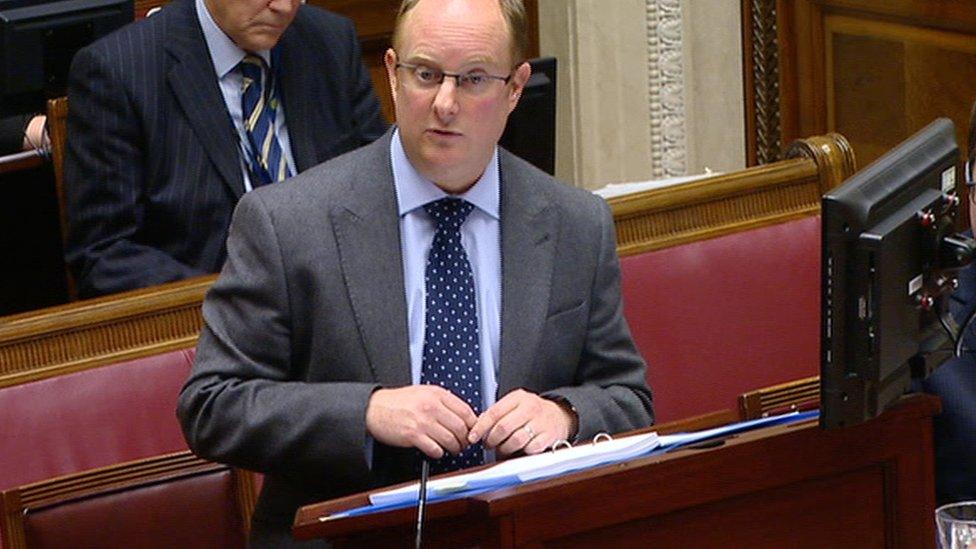
David Scoffield QC making his opening remarks to the inquiry on Tuesday morning
In written evidence, CEPA now said officials in DETI should have spotted the flaw themselves, said Mr Scoffield.
CEPA's statement to the inquiry said that it had "gone too far in terms of assuming responsibility, especially given the internal experience that DETI had and given what we were contracted to do".
It also emerged that no-one in the department noticed the mistake about the subsidy level, which made it through several more stages and ultimately into the regulations.
The mistake was carried in what Mr Scoffield called a "fatal footnote" in departmental documents which stated incorrectly that in all cases the cost of the fuel was higher than the level of subsidy.
He said the business case which was approved to allow the RHI scheme to start contained the "fatal footnote" but also details which contradicted it.
"The public will want to know and deserve to know how that was missed," Mr Scoffield said.
'Ofgem whistleblower'
On Wednesday afternoon, the inquiry was told an Ofgem employee contacted Sinn Féin in January this year and made allegations about the energy regulator's "mismanagement" of the RHI scheme.
The whistleblower has since provided the inquiry with a witness statement, making serious allegations about Ofgem's conduct in running the scheme, and claiming the regulator attempted to cover up mismanagement.
Mr Scoffield told the hearing Ofgem rejects those claims and will explain to the inquiry "what may be a complex history" behind them.
- Published7 November 2017
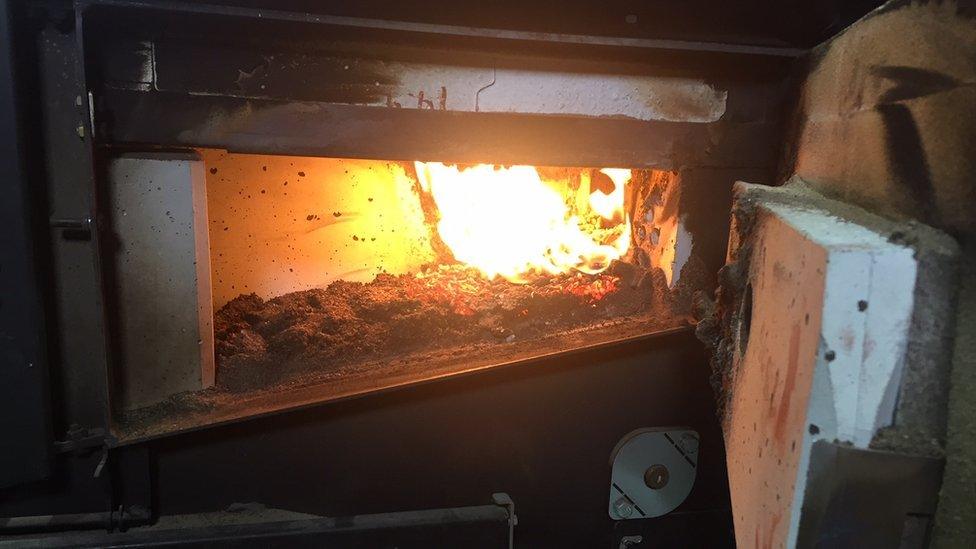
- Published7 November 2017

- Published7 November 2017

- Published23 October 2019
